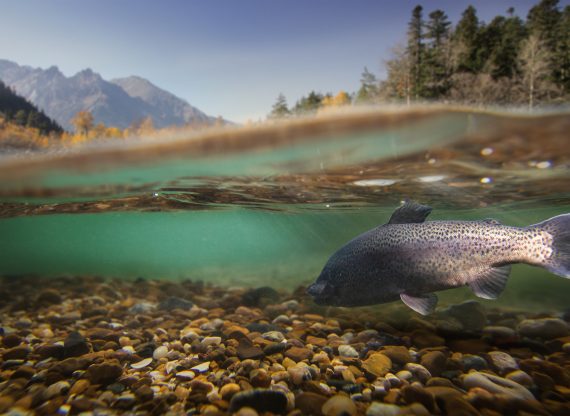When a private organization teams up with farmers to protect water and fish

Article 3 of the “Capitalism: Working for the Environment” Series.
Protecting the environment has become a growing concern in our societies. To manage this while also safeguarding our prosperity, we must succeed in combining the constant development of human activity with the balance of nature. In the United States, certain private initiatives aiming to achieve such a goal have surfaced.
There is, for instance, Trout Unlimited, a national, non-profit organization with 300,000 members and supporters devoted to conservation, protection, and restoration of cold-water fisheries and their watersheds in North America.
The organization is also involved in also water conservation. As noted by the Foundation for Economic Education, Trout Unlimited works with Western farmers and ranchers to temporarily divert some of the water they use for agriculture, leaving it instream at certain times of the year to support fish populations. In exchange, the organization financially compensates farmers.
This approach reconciles the interests of farmers and the protection of nature. It rests on a contractual framework rather than a coercive one: “Where instream flow is legally considered a beneficial use, water rights holders can enter into a voluntary agreement with conservation groups to leave some of their water instream without risk of forfeiting their water rights.”
Relying on market rules and voluntary agreements allows the different players to find win-win solutions, and has the benefit of not depending on direct investment from a government body. By using price mechanisms and property rights, conflicts are reduced, and everyone can collaborate on the goal of conserving water, which is indeed considered a very precious resource in certain regions and situations.
Download the PDF version of this article.
This series shows and explains how economic freedom and the resulting entrepreneurial innovation helps protect the environment.
Michel Kelly-Gagnon is President and CEO of the MEI. The views reflected in this opinion piece are his own.

